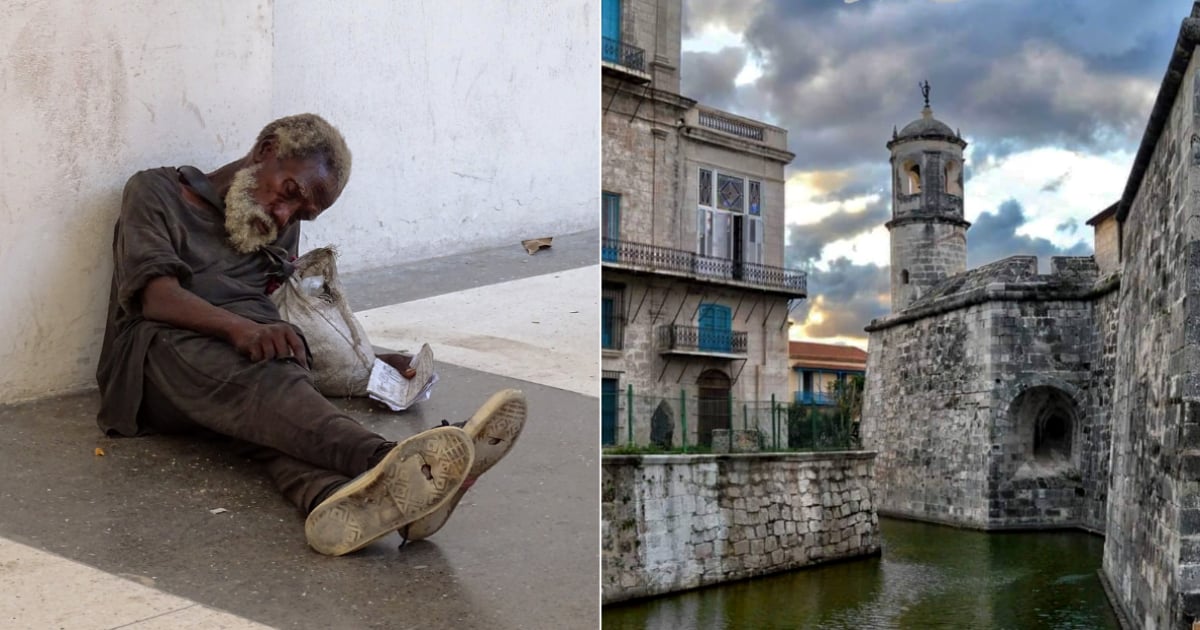
Havana commemorates its 505th anniversary amid a severe crisis impacting the quality of life of its residents.
Prolonged power outages, building collapses, accumulation of trash, water shortages, and deficiencies in essential services reflect the decline of the Cuban capital, overshadowing the celebration of this historic city.
Energy crisis: endless blackouts
Power outages are a constant in the lives of Havana residents. The Electric Union (UNE) recently reported that the electricity generation deficit exceeds 1,500 MW, which has resulted in blackouts in some municipalities lasting over 12 hours a day.
These power outages not only affect the lighting but also disrupt essential services such as water pumping and telecommunications.
In municipalities like Boyeros and Centro Habana, power outages have sparked neighborhood protests, with citizens taking to the streets to demand a solution. In October, a complete blackout caused by the collapse of the national electric system, lasting several consecutive nights, triggered demonstrations in Havana and other provinces, reflecting the growing public dissatisfaction.
Landslides: the Mark of Time and Cyclone Rafael
The deterioration of buildings in Havana is another visible aspect of the crisis. Many structures, especially in Centro Habana and La Habana Vieja, are in a state of ruin, posing a threat to those who live in them.
This year, a collapse on Obispo Street left several families homeless, highlighting the risks faced by residents of properties deemed uninhabitable.
These common issues were compounded by the damage caused by Cyclone Rafael, which hit the capital with torrential rains and strong winds.
In municipalities such as Diez de Octubre and Habana del Este, the heavy rains caused the collapse of already weakened buildings, displacing dozens of families.
In Guanabacoa, a partial collapse caused by the cyclone trapped two people, who were rescued by firefighters, although they lost all their belongings.
Waste and sanitation crisis
The waste problem in Havana is a growing concern. The accumulation of trash in streets and corners, particularly in peripheral municipalities like Marianao and Arroyo Naranjo, has become a public health issue.
Improvised garbage dumps, putrid odors, and pests like rats and cockroaches are part of daily life. Provincial authorities and the leader Miguel Díaz-Canel himself have attempted to address this serious issue, but their initiatives have proven ineffective.
A recent example occurred in the Plaza de la Revolución municipality, where residents reported the accumulation of garbage for weeks due to a lack of regular collection. Images shared on social media showed mountains of waste blocking streets and causing outrage.
Shortage of drinking water
Water, an essential resource, is also scarce in many neighborhoods of Havana. Interruptions in the water supply have worsened due to power outages that affect pumping systems, as well as the deterioration of hydraulic infrastructure.
In areas like Arroyo Naranjo, residents rely on truck deliveries for water, facing weeks without access to the service.
In the municipality of Havana del Este, the lack of drinking water has prompted residents to organize and demand solutions. The scarcity affects not only households but also hospitals and schools, intensifying daily struggles.
Deficiencies in the healthcare system
The hospitals in Havana, like those throughout the Island, are also facing serious challenges. Recent reports indicate a shortage of medical supplies, unsanitary conditions, and delays in care.
In April, a Cuban doctor raised concerns about the illegal practice of abortions being performed under unsafe conditions, putting patients' lives at risk.
Additionally, in June, the death of an elderly woman at the "General Freyre de Andrade" Clinical Surgical Hospital was reported due to medical neglect, which sparked outrage among the population.
Delays and limitations in the supply booklet.
In recent months, issues with food distribution through the ration book in Havana have led to increasing discontent among the population.
In August 2024, it was reported that Havana residents received their monthly allowances with weeks of delay.
This rationing not only affects the availability of essential products but also highlights the logistical difficulties of the system. Families face long waits to obtain basic food items, which increases frustration with a system that, rather than ensuring food security, exacerbates shortages.
In September, difficulties continued to persist. For instance, the size of the bread included in the basic food basket was reduced, a measure that sparked criticism from consumers who reported a decline in the quality of an essential product.
Furthermore, the residents of Havana only received packages of pasta as part of the allocated quotas for that month, which sparked outrage over the lack of variety and the insufficiency of the delivered products.
These episodes reflect an increasingly limited and disorganized supply system, leaving the residents of the capital in a state of food insecurity that directly impacts their quality of life.
Problems with fuel sales
The sale of fuel in Havana has faced serious difficulties. In March 2024, new fuel prices were implemented, leading to confusion and dissatisfaction among drivers.
Additionally, issues were reported with the point-of-sale (POS) terminals at service centers, making transactions difficult and leading to long queues.
The fuel shortage has impacted both public and private transportation, raising mobility costs and complicating daily life for the people of Havana.
Discontent and disappointment on the anniversary
While authorities promote cultural activities to celebrate the city's 505th anniversary, public unrest is evident. On social media and in the streets, many residents of Havana express their growing dissatisfaction.
Breaking News
Filed under: